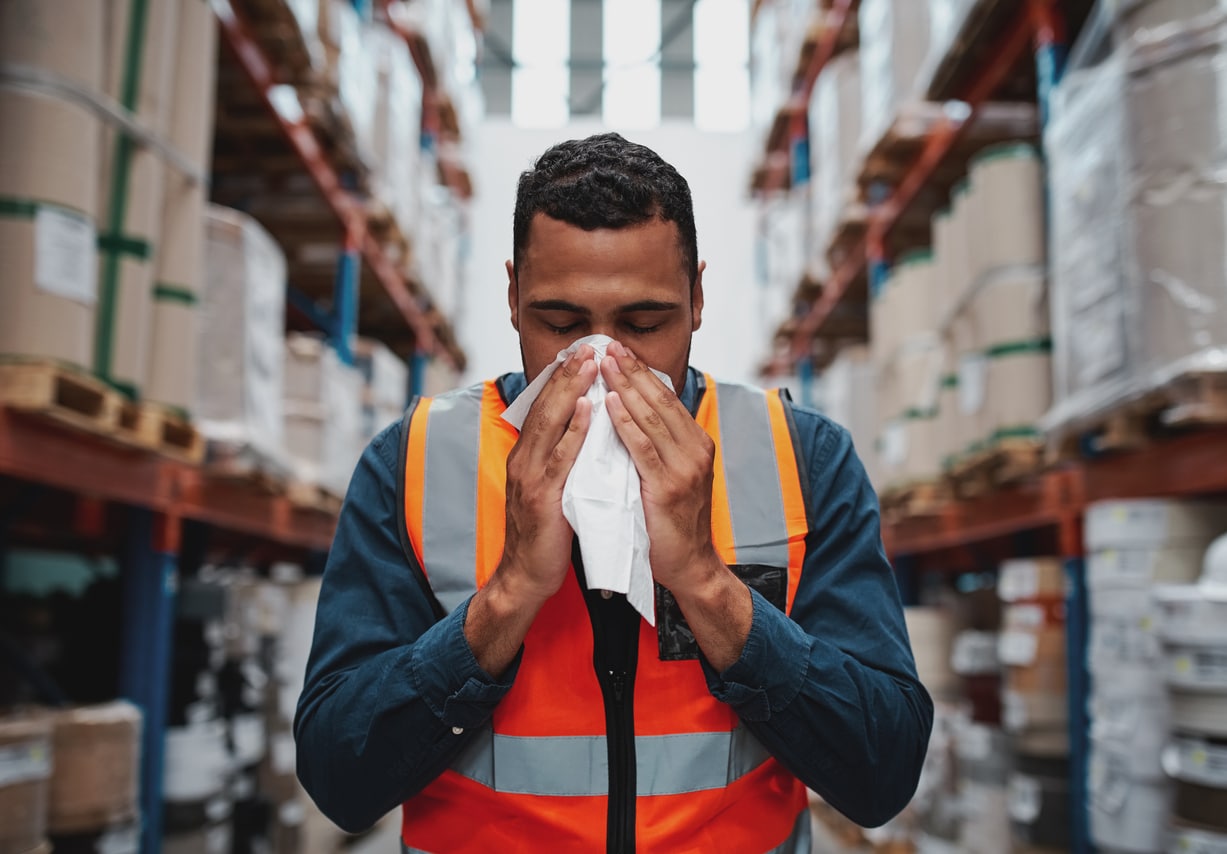When you think of things that negatively affect your health at work, germ spread and physical injuries from manual labor are probably the first that come to mind. But pulled muscles and colds aren’t the only safety risks.
According to a 2017 study, approximately 11 million workers in the USA encounter substances that produce allergic conditions, including: asthma, allergic contact dermatitis (ACD), urticaria, allergic rhinitis, eczema and folliculitis.
What Substances Cause Allergic Conditions?

There are hundreds of allergenic chemicals and proteins present among different workplaces. A few common examples include:
- Metals
- Epoxy and acrylic resins
- Rubber additives
- Rubber latex
- Plant proteins
- Mold
- Animal dander
- Dyes
- Certain foods
- Cleaning agents
If you’re sensitive to one or more of these substances, you may develop symptoms including but not limited to:
- Skin rash
- Wheezing, coughing or trouble breathing
- Itchy or watery eyes
- Swelling of the face, lips, tongue or throat
Are Any Professions More Likely To Cause Allergies?
Professions where you work with manufacturing equipment, strong chemicals and food are the most likely to cause allergies. A few people who show an increased risk include:
- Healthcare workers
- Hairdressers and cosmetologists
- Manufacturing and automotive workers
- Janitorial staff
- Food processing and packaging workers
- Metalworkers
- Food processing and packaging workers
Generally, people in office jobs are less likely to encounter allergens.
How Can Workers Prevent Allergic Reactions?
The 2017 study emphasized the importance of creating effective risk management strategies to prevent the development of sensitivities and allergic reactions in vulnerable individuals.
The strategies involved two steps:
- Primary prevention. Primary prevention aims to stop sensitization through measures like allergen modification, substitution with safer agents, exposure controls and protective equipment.
- Secondary prevention. Secondary prevention monitors workplace conditions and workers’ health to detect and limit sensitization progression.
Occupational allergies carry significant personal, social, and economic costs, often forcing workers to avoid allergens entirely, sometimes by changing jobs or careers. Paying close attention to the development and effects of occupational allergies is crucial in limiting their impact on workers and companies.
Identify Your Allergies Today
If you work at a hair salon, manufacturing plant, cleaning company or any other allergen-heavy environment in Fort Wayne, scheduling an allergy test is crucial.
Allergy testing identifies the specific allergens you’re sensitive to. Once you know what substance is causing your symptoms, you can take steps to avoid it.
Contact Ear, Nose & Throat Associates today to schedule an appointment with one of our specialists.